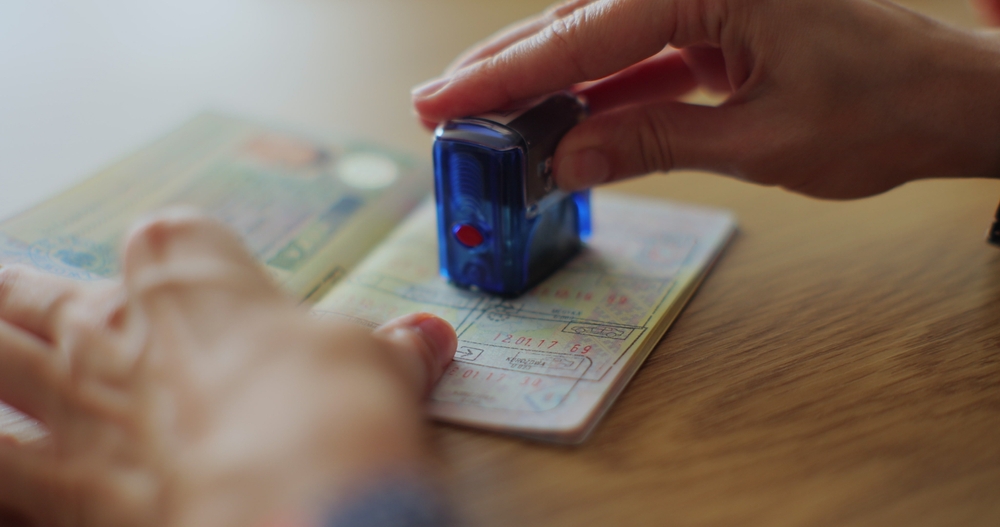Top Documents You Need for a Smooth UK Spouse Visa Application

When applying for a UK spouse visa, ensuring that you have all the necessary documents in order is crucial for a smooth and successful application process. The UK Home Office is meticulous when assessing visa applications, and missing or incorrect documents can lead to delays, rejections, or requests for additional information. If you want to ensure your spouse visa application goes smoothly, understanding what documents are required is vital.
In this article, we will outline the top documents needed for a UK spouse visa application and provide useful tips to make your application process as seamless as possible.
1. Proof of Identity and Nationality
The first set of documents you’ll need for a UK spouse visa are those that prove your identity and nationality. Both you and your spouse (the sponsor) will be required to provide evidence of who you are and where you come from.
- Passport: A valid passport or travel document is required for both the applicant (you) and the sponsor. Your passport should be valid for the entirety of your visa application process, and it must have been issued by an official authority.
- Birth Certificate: If you’re applying from outside the UK, you may also need to submit a birth certificate or another official identity document that establishes your nationality.
- Biometric Information: As part of the application process, applicants are often required to provide biometric information, which includes fingerprints and a photograph. This is a key document when applying for a UK visa and must be done at an authorized center.
2. Proof of Relationship
The UK Home Office needs to verify that your marriage or civil partnership is genuine and not a marriage of convenience. This is where providing proof of your relationship is essential.
- Marriage Certificate or Civil Partnership Certificate: You will need to provide an official marriage certificate or civil partnership certificate. This document must be in English or accompanied by a certified translation if it is in another language.
- Photos and Communication Evidence: While not mandatory, submitting photographs together and evidence of ongoing communication (such as emails, letters, or messages) can strengthen your case. The Home Office will look for evidence that you and your spouse have been living together or in a committed relationship for a certain period.
- Joint Financial Documents or Utility Bills: Documents that show you and your spouse share a home, such as joint bank statements, utility bills, or tenancy agreements, can be used to prove that you’ve been living together for an extended period.
3. Financial Evidence
One of the key requirements for a UK spouse visa application is demonstrating that you and your spouse meet the financial requirements set by the UK government. The Home Office wants to ensure that you will not be relying on public funds and that you can financially support yourselves.
- Minimum Income Requirement: The UK spouse visa requires a minimum annual income of £18,600. If you have children who are not British citizens or settled in the UK, this amount increases.
- Employment or Payslips: Proof of your income can include employment contracts, payslips for the last six months, and bank statements. If you are self-employed, you will need to provide your most recent tax returns and financial statements.
- Savings: If you don’t meet the income requirement, you may be able to use savings as a substitute. The required amount of savings will depend on the shortfall in income. A savings account statement showing the required amount will suffice.
- Financial Support from Third Parties: If someone else is supporting you financially (e.g., a family member), you will need to provide a formal declaration of support from them, along with evidence of their income or savings.
4. Proof of English Language Proficiency
The UK Home Office requires applicants to demonstrate that they meet a certain level of English proficiency as part of the spouse visa application process. This is a vital document that should not be overlooked.
- English Language Test Results: If you are not from an English-speaking country, you will need to prove your proficiency by passing an approved English language test. The test should show that you meet the minimum level of English proficiency required by the Home Office (usually A1 for a spouse visa).
- Degree-Level Qualification: If you have a degree taught in English, you may be able to use that as proof of your language skills. You will need to provide the original degree certificate and, if applicable, a transcript of your course.
- Exemptions: In certain cases, applicants may be exempt from the English language requirement, such as for those over 65 or individuals with specific health conditions.
5. Proof of Accommodation
To ensure that you and your spouse will have suitable accommodation once you arrive in the UK, the Home Office requires evidence of your living arrangements.
- Accommodation Details: You will need to submit proof of where you will be living, whether it’s in rented accommodation, your own property, or with friends or family. This could include a tenancy agreement, mortgage documents, or a letter from a landlord stating that you have accommodation available.
- Space Requirements: The accommodation must meet specific space requirements and be suitable for both you and your spouse. The Home Office will want to ensure that you will not be living in overcrowded conditions, so it’s important to submit evidence that your accommodation meets the standards.
6. Health and Character Documents
The UK spouse visa application process also involves proving your health and good character. These documents can be crucial for the approval of your visa.
- Tuberculosis (TB) Test Results: Applicants from certain countries will need to provide a TB test certificate to prove that they do not have tuberculosis.
- Criminal Record Checks: If you are applying from certain countries, you may also need to provide a police certificate or criminal record check from your home country, confirming that you do not have a criminal record.
- Medical Insurance: While not always a requirement, applicants may choose to submit evidence of medical insurance to prove that they will not rely on public health services in the UK.
7. Application Forms and Fees
Lastly, ensuring that you’ve completed the correct application forms and paid the necessary fees is essential.
- Application Form: You will need to fill out the official UK spouse visa application form accurately. This is typically done online.
- Application Fee: The spouse visa application comes with a fee that varies depending on whether you apply from inside or outside the UK. It’s crucial to pay the fee before submitting your application.
- Immigration Health Surcharge (IHS): In addition to the application fee, you may also need to pay the Immigration Health Surcharge, which grants you access to the National Health Service (NHS) while you are in the UK.
Conclusion
Preparing your documents for a UK spouse visa application is a detailed and often challenging process. Ensuring that you have all the required documents and supporting evidence is vital to ensure that your application is processed smoothly. By carefully collecting the necessary paperwork, including proof of identity, relationship, financial requirements, English language skills, accommodation, health, and character, you can avoid unnecessary delays and strengthen your chances of approval.
For expert guidance throughout the process, consider consulting a professional immigration advisor like Immigration Connection to ensure that your application is both complete and accurate.









